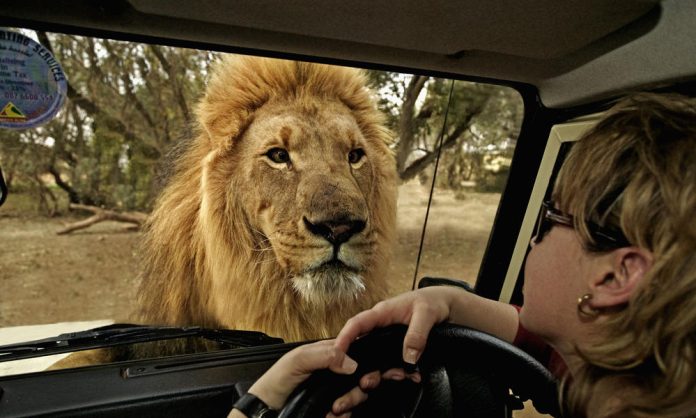East African holidays are a significant contributor to tourism in the region, attracting both domestic and international visitors. During the holiday seasons, East Africa experiences a surge in the number of tourists, leading to a boost in revenue for the tourism industry and local businesses. These holidays also provide an opportunity for the promotion and preservation of local customs, traditions, and heritage, enhancing the cultural tourism experience in the region.
Moreover, East African holidays play a crucial role in creating employment opportunities in the tourism sector, contributing to the overall economic growth of the region. The presence of holidays in East Africa acts as a catalyst for tourism, as visitors are drawn to explore the region’s natural wonders, national parks and wildlife reserves, historical sites, and vibrant cities.
Compared to other destinations, East African holidays are a unique tourist experience. It’s the first time they are willing to go to a third-world country for the first time. They may already have preconceived ideas from the media about starving people, deteriorating infrastructure, and countless unsolvable problems. However, what they find is very different. They are surprised by the warm smiles and helpful nature of the local people, the relaxed lifestyle without the stresses of modern life.
Visitors enjoy the safety and peace of the countries, and it gives them a chance to explore and discover for themselves, the almost forgotten pleasures of life. Self-drive safaris or guided tours are also available. In itself, it is a very different experience from what they have in their package holidays in Europe which adds to the attraction of returning.
East African holidays are not only about the sun, palm trees, and the beautiful landscapes of this beautiful continent. It is also about discovering the other half of the world and its diverse cultures, learning about the problems faced by people living in developing countries, and offering help.
Importance of East African holidays
East Africa consists of countries such as Rwanda, Uganda, Kenya, Tanzania, and Burundi, where the most important holidays are provided with the things that tourists most desire. It’s a beautiful place where they can take postcard-perfect pictures, a warm tropical climate. The most important holidays take place during the mid-year of November and January. The most important thing is affordability. The average holiday in East Africa will cost less than most holidays abroad. This is due to the weak economic conditions in most East African countries.

During these holidays, the prices of safari accommodations, and flights are at their peak. Tourists will pay twice the normal price, to the extent that a common person would consider increasing the rental fees.in Kenya, Uganda, and Rwanda, Car rental agencies also benefit from this period as the sector calls for numerous modes of tour – including self-drive holidays. Here travelers can rent 4×4 vehicles for self-guided tours with the possibility of out-door camping in the wilderness.
East Africa is also a good location for domestic tourism by the residents of the region – Wildlife safaris in East Africa attract thousands of tourists each year. These holiday periods are considered to be a good time to get rid of the stress of daily life and take a break. Kenya, for example, is a good place to take a coastal holiday during the cold and rainy weather that hits Nairobi at the end of the year. During breaks, domestic tourism is also promoted through different methods.
All the different activities that take place in East Africa cause ruckus in the tourism sector. Every other industry, in some way, has a rejuvenation time during the holiday season. People will want to ensure a stable money flow, and this incites the tourism industry to provide the best recreation or relaxation services to effectively do more business in providing a wider range of customers (domestic and international) and providing job opportunities to interest.
Growth of tourism in East Africa
East Africa has seen a sharp increase in tourism in recent years. The traditional structure of East African society is starting to change significantly as a result of this growth. African lifestyles are frequently in danger and negatively impact tourism due to the expansion of commercial agriculture, the dissolution of traditional social structures, and the consequences of cash crop farming on land use.

Due to their increased financial viability, tourist destinations like the Masai settlements in northern Tanzania have partially resisted modernization. The Batwa people today reside on the outskirts of the forests that formerly covered the rainforests of the Bwindi Impenetrable Forest and the Virunga Mountains in Rwanda and the Democratic Republic of Congo. The government of countries with strong tourist economies, such as Kenya and Tanzania, are trying to exploit the economic potential of their tourist destinations.
Whether they can compromise the factors that draw tourists to a country is up for dispute. For instance, the vast open areas and pristine woodlands of the Masai Mara, in the Serengeti National Park, provide an idealized image of what Africa ought to look like to many safari enthusiasts. But as the number of people and animals grows, there is more strain on the land, which leads to habitat fragmentation and devastation.
The loss of Serengeti’s wildlife migration would detract significantly from Tanzania’s unique selling points Similarly, the construction of a commercial resort in a place such as Lake Bunyonyi in Uganda may have a short-term economic benefit for a small sector of society, but it will have a long-term negative impact on the beauty and ambiance of Uganda, which are likely to have much greater economic importance.
To protect natural resources and reduce adverse effects on the environment, it is crucial to control and regulate tourism throughout the holiday season. Despite this, the region’s tourism benefits from excursions to East Africa because of the rich bio-cultural and historical diversity of the area, which draws quality-conscious travelers. All things considered, East African vacations are an essential part of the travel and tourist sector, fostering job creation, cultural heritage preservation, and economic progress in the area.



















